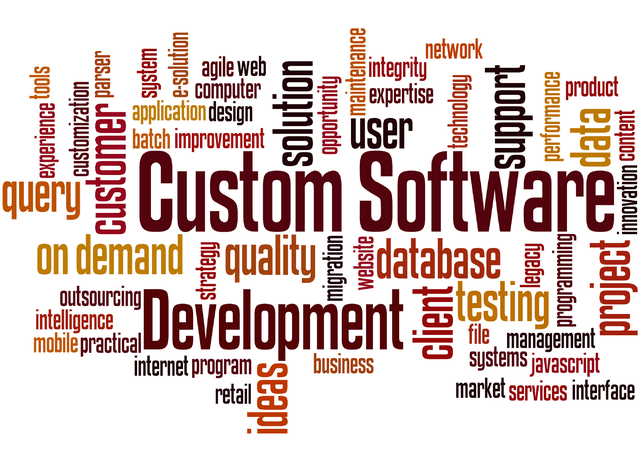How System Integration Can Help A Business To Grow

What is systems integrations?
Throughout time getting things to work together has been, and still is, one of humankind’s hardest problems to solve. Whether that be cogs in a machine, people in a group or systems in a business, sometimes getting things to come together in an efficient and effective way has always been hard. Bespoke Systems can easily integrate various independent software together and communicate via custom API integration.
Systems integration is not by any means a new phrase; IT technicians have been using the term since at least the 70s! However, this is not to suggest that the practice is any less important today than it was almost 50 years ago. In fact, in todays age things like the Cloud Computing and the Internet of Things are all utilising systems integration to connect systems and software across the globe to work as an integrated whole. Systems integration can be both physical and functional through programming, process management, enterprise application integration etc.
You can’t teach an old system new tricks… or can you?
The biggest obstacle in the way of systems integration is linking dissimilar systems together. This can be because one system is an older legacy version or perhaps the system was just not designed to be linked with other systems. Once this issue is overcome though the original system becomes a much more powerful system with the ability to do much now it’s parts are combined. Processes can be automated and simplified meaning administrators and other IT staff spend less time with the monotonous tasks such as repetitive data entry and have more time for the more important tasks their skills are required for.
Do you need systems integration?
Many businesses don’t realise just how lethargic their workflow is until they sit down and really analyse just how much time is wasted by having separate systems working against each other. If your business is being run the way your software wants you to run, then perhaps its time to consider systems integration. It’s no secret that utilising your staff to the best of their abilities is key to running a successful company, so why waste the time of your IT specialists? Everyone is susceptible to the downfalls of not having integrated systems, don’t be left behind!
Please checkout our client's reviews:
Key things to keep in mind before choosing systems integration
- Before taking the plunge its good to have a sit down with others and go through your entire work process, start to finish, and create a workflow-chart. This will highlight just how many things you can link together and how much time can be saved by doing so. Using this, generate a strategy to combine all these separate aspects efficiently.
- Keep the door open for expansion! It is not rare to see businesses grow and change as time goes on, this is a good thing! However, keep in mind that if your strategy is shortsighted and does not account for the future you may find yourself in a similar situation sooner than you’d hoped.
- It is easy to focus on the here and now when thinking about systems integration. Oftentimes the future is severely overlooked, especially when a system is particularly derelict. Some companies become obsessed with getting better systems and software now without thinking that one day in the future they may be in the same situation they are now if they do not plan effectively. A famous quote by David Heinemeier Hansson reads “The best way to predict the future is to implement it.”
- Continuation of legacy systems means you won’t have to retrain staff. Sound great right? However, be aware, sometimes it is more worth creating an entirely new way to work if you think it will save you time in the long run. And as we all know, time is money.
- Don’t rush into anything. One of the biggest killers of small and medium enterprises is the unnecessary urgency about big IT based decisions. It is a far better choice to take your time and consider every aspect of this decision than jump into it headfirst.
The future and scalability of systems integration
Nowadays, newer systems are being designed with the intention to be part of bigger, better and faster processes. Their individual limitations are minimised by allowing themselves to be linked to other systems.
When a successful systems integration is completed, your company will quickly find that efficiency across the company is increased. This gives you and your business time to react faster to market changes and other randomly occurring issues you will face. Furthermore, you will find that your system will not only allow that but in fact support it. Without the restrictions found in outdated, legacy versions of IT software business are truly let free to flourish with faster reporting, management, performance, and efficiency.
Computers were created to enhance our lives, to be a catalyst for production and efficiency, not to hinder it. Once you are able to get rid of incompatible systems and move your focus entirely to achieving goals as opposed to focusing on getting your systems to work together as best as possible, it will become apparent just how much time and resources you will have available to put elsewhere.
Once you are locked into the idea of systems integration, you will need to find someone you are prepared to work closely with in order to make it all work. If you would like to enquire with Web Alliance about systems integration feel free to contact us.
If you need more information about custom made software system understanding read out following:
FAQs
Q. So, What's System Integration Anyway?
Q. Why's It a Game-Changer for Growth?
Q. Top Perks I've Seen?
Q. Watch Out For These Hiccups
Q. Ready to Start?
Read our other blog for more information

What are the common features of custom database software?
As your business is unique, it makes perfect sense to …

8 Ways a Custom Database System Will Expand the Growth and Success of Your Business
Did you know that custom databases are more practical and …



